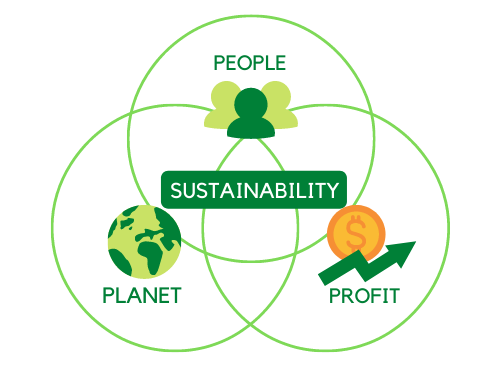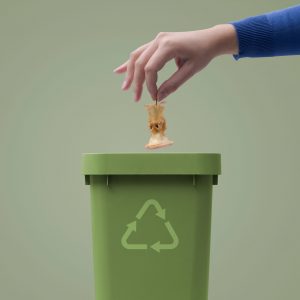The Triple Bottom Line (TBL) or the 3BL was first coined by entrepreneur and business writer John Elkington in 1994.
According to Elkington, companies should measure value not only through the financial bottom line of profit or loss. Instead, business value should track and manage economic (profit), social (people) and environmental (planet) performance.

What does this mean for businesses?
Sustainable businesses equally care about social, environmental, and economic impact. For advocates of the TBL, a company attains optimum growth if it could bring social equity, environmental sustainability, and shared economic prosperity as natural byproducts of creating profits.
By reinvesting profits into people, businesses strengthen their relationships with different stakeholders, employees become happier and more productive, and businesses create further value through the products they delivers to their customers.
By reinvesting in the planet, businesses also enjoy cost savings through resource-efficient equipment and operations, they lessen risks brought by climate change, and they show their commitment to long-term growth and environmental sustainability.
Sustainable businesses integrate sustainability in every aspect of the company – in the way it gives equitable treatment and value to its employees, maintains fair trade to suppliers, promotes responsible consumption and production of natural resources, support good governance, and sustains shared economic prosperity among stakeholders.
Sustainability is good for business.
The Triple Bottom Line is more than just a tool. It is a lens that companies can use to make proactive and meaningful strategies.


